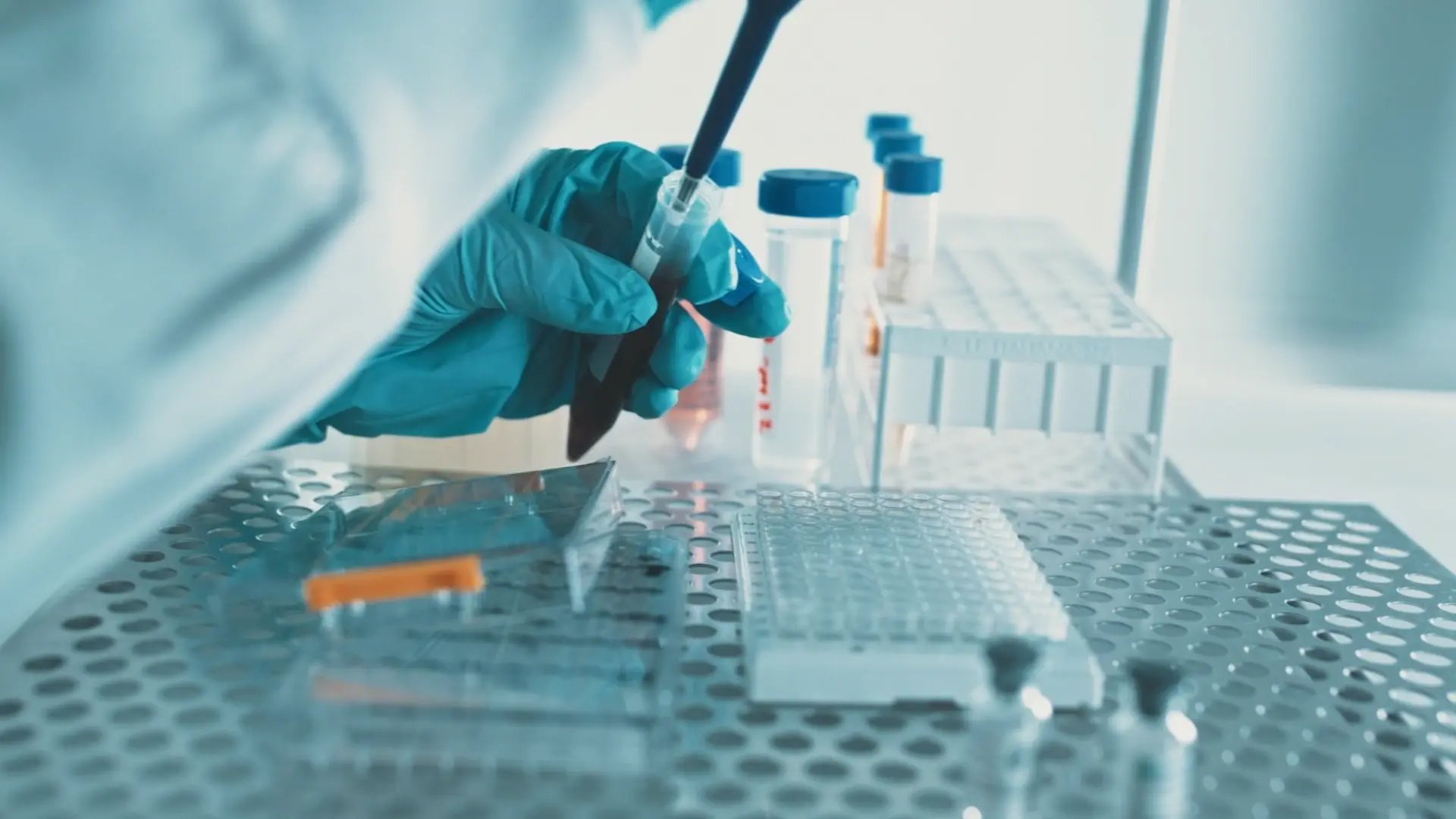Our Services - Biostatistics
At Cmbio, our team of bioinformaticians and statisticians specializes in microbiome and multi-omics data analysis, helping you make sense of complex datasets and generate actionable results.
Unlock the full potential of your microbiome data with cutting-edge analytical techniques and statistical methods designed to turn complexity into clarity.
Biostatistics
Analyzing microbiome data presents unique challenges, and having the right statistical tools and expertise is essential to derive meaningful insights. At Cmbio, our team of bioinformaticians and statisticians specializes in microbiome and multi-omics data analysis, helping you make sense of complex datasets and generate actionable results.
Microbiome and Multi-Omics Data Analysis
Microbiome data is inherently complex, characterized by compositional, zero-inflated data and non-normal distributions. These features require specialized statistical techniques to ensure accurate interpretation. Our team has developed and implemented advanced tools to address these challenges, providing robust and reliable analyses for your studies.
-
Compositional Data Handling
We use state-of-the-art methods to analyze relative abundance data, addressing issues like sparse data, compositionality, and non-normal distributions.
-
Multi-Omics Integration
Beyond microbiome data, we integrate additional omics layers such as metabolomics, metatranscriptomics, and functional profiling (e.g., gut metabolic modules, gut-brain modules, AMR profiling).
.webp?width=2000&height=1500&name=Biostatistics%20Photo%20(2).webp)
Experts at Work: Biological Interpretation
Understanding the biological significance of statistical results is crucial for making informed decisions. At Cmbio, we have a team of microbiologists who collaborate closely with our statisticians to provide clear and insightful interpretations of your data, ensuring the findings are biologically relevant and actionable.
.webp)
Comprehensive Biostatistical Analysis
We offer comprehensive biostatistics services tailored to your study’s design, whether it is longitudinal, requires consideration of confounders, or involves comparisons between study groups. Whether you're correlating microbiome data to clinical metrics, phenotypes, or other health outcomes, we provide the statistical expertise to reveal meaningful associations.
-
Longitudinal Studies
We handle complex longitudinal datasets, identifying trends and changes in microbiome composition over time.
-
Confounder Adjustment
We account for potential confounders, ensuring that your findings are not biased by external factors.
-
Group Comparisons
We conduct differential abundance testing to identify key differences between your study groups.
-
Correlation with Clinical Outcomes
We specialize in correlating microbiome data with clinical or phenotypic metrics to uncover relationships that inform health or disease mechanisms.
.webp?width=2000&height=1333&name=Biostatistics%20Photo%20(1).webp)
Publication-Ready Figures and Manuscript Support
We not only provide in-depth statistical analysis but also deliver publication-ready figures and method text directly transferable to your manuscripts. If required, our team can assist in the writing, preparation, and proof-reading of manuscripts, ensuring that your study is presented with clarity and precision.
.webp)
Taxonomy and Functional Potential Analysis
In addition to taxonomic composition analysis, we offer insights into the functional potential of microbial communities, helping you understand how key functions change across conditions. This includes investigating gut metabolic modules, gut-brain modules, antimicrobial resistance (AMR), and metabolomics data. Our multi-omics integration allows for a deeper exploration of the functional implications of microbial shifts.
This includes investigating:- Gut metabolic modules
- Gut-brain modules
- Antimicrobial resistance (AMR)
- Metabolomics data
-1.webp)
Our Process
Compositional Data Handling
We analyze relative abundance data using cutting-edge methods, solving challenges like sparse data and non-normal distributions.
Multi-Omics Integration
Beyond microbiome data, we integrate additional omics layers such as metabolomics, metatranscriptomics, and functional profiling (e.g., gut metabolic modules, gut-brain modules, AMR profiling).
Longitudinal Studies
We handle complex longitudinal datasets, identifying trends and changes in microbiome composition over time.
Confounder Adjustment
We account for potential confounders, ensuring that your findings are not biased by external factors.
Group Comparisons
We conduct differential abundance testing to identify key differences between your study groups.
Correlation with Clinical Outcomes
We specialize in correlating microbiome data with clinical or phenotypic metrics to uncover relationships that inform health or disease mechanisms.

Frequently Asked Questions
-
What is biostatistics used for?
Biostatistics is used to help researchers make sense of biological data by uncovering patterns, relationships, and trends in even the most complex datasets. It plays a key role in fields like microbiome research, clinical trials, and public health, providing researchers with the tools needed for further analysis.
By using visual aids like bar charts, line graphs, and frequency tables to present data, biostatistics transforms raw data into clear and actionable insights that can be used to guide critical decisions in health, medicine, and biology. -
What does a biostatistician do?
A biostatistician uses statistical computing and standard methods to design studies, analyze data, and draw meaningful conclusions. They handle data complexities using advanced techniques, including machine learning and weighting methods, so they can generate accurate and reliable results.
Biostatisticians also create graphical representations such as bar charts and line graphs to visualize trends they find and work with researchers to provide more detail on key findings. -
What is the basic concept of biostatistics?
Biostatistics involves applying complex statistical concepts and basic statistics methods to biological and health data in order to extract deeper insights. This includes data handling concepts like organizing and summarizing data, and also data visualization concepts, using tools like bar charts, frequency tables, and line graphs.
Biostatistics methods emphasize appropriate sample size, using standard methods for analysis, and providing accurate interpretations to inform further research or clinical decisions.